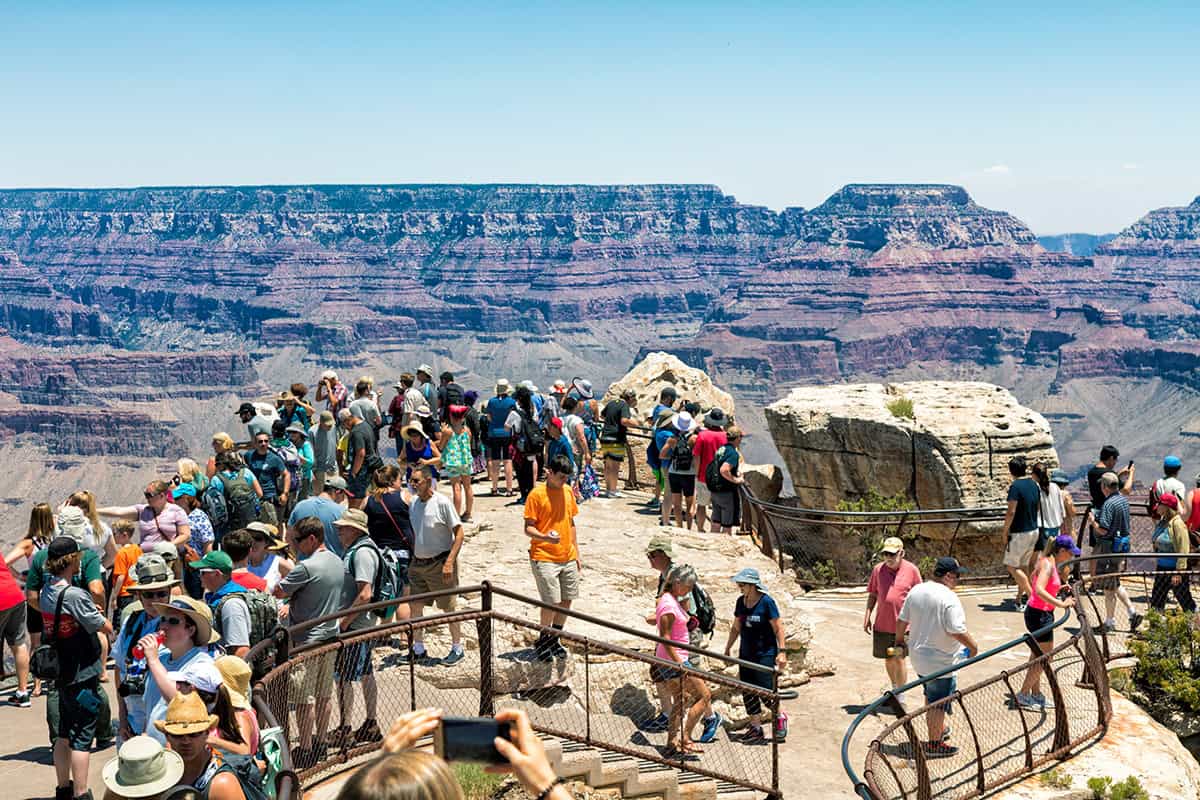1. LET PEOPLE KNOW ABOUT THESE PIONEERS.
Chances are, the readers of this issue of PERC Reports were unaware of most of the individuals mentioned here until now. Perhaps a few have visited Fossil Rim and some have read in PERC Reports about Orri Vigfœsson’s purchase of salmon fishing rights. But the environmental successes of most of nature’s entrepreneurs go largely unheralded.
Enviro-capitalists don’t spend their time writing press releases. Indeed, some folks didn’t think their projects worthy of public attention until they were featured in Terry Anderson and Don Leal’s book Enviro- Capitalists. Nor do enviro-capitalists spend much time in Washington pleading with congressmen or meeting with lobbyists. They don’t set out to butt heads with anyone- industry, environmental groups, or government officials. By and large, their stories are private ones.
These are, however, success stories that are well worth reading about. For adults, they suggest positive new directions for environmental policy. For young people, they offer hope for the future and the inspiration to initiate their own enviro-capitalist projects.
Terry Anderson and Don Leal wrote Enviro-Capitalists to publicize these actions and encourage more. Today, publications such as Reader’s Digest and Time Magazine have picked up the theme with features on environmental entrepreneurs.
Governmental agencies and environmental groups recognize their importance, as well. The Competitive Enterprise Institute’s Center for Private Conservation focuses almost entirely on collecting case studies. Perhaps the first serious effort to tally private environmental successes occurred in the mid-1980s when the President’s Council on Environmental Quality published a study of private environmental projects compiled by Robert J. Smith.
PERC is committed to learning more about envirocapitalists and spreading the word far and wide. The examples illustrate not only the effectiveness of private action but also the cooperation that is engendered by market transactions. We encourage other organizations to search out and disseminate these stories as well.
2. SUPPORT PROPERTY RIGHTS.
Government support of private property rights is essential to enviro-capitalists’ success. Property rights are the key ingredient of a market, and whether they are creating a wildlife preserve or restoring a prairie, enviro-capitalists rely on markets. Orri Vigfœsson’s efforts to protect salmon (page 16) have prospered where private fishing rights exist and have faltered where they do not.
Government policies sometimes fail to uphold private property rights and, in fact, may challenge them. Fear of excessive intervention led Montana rancher David Cameron to give up his goal of restoring a native fish that had disappeared from many Montana streams (page 12). Indeed, the Endangered Species Act has been less effective than its supporters originally hoped because landowners fear that endangered species will bring government officials onto their property.
In a celebrated case in North Carolina, Ben Cone was so incensed by government control of his property when the red-cockaded woodpecker was found on it that he threatened to log the rest of his land more rapidly than he had before. A shorter logging rotation would keep the woodpecker from settling there, because the bird nests in old trees.
This unfortunate but understandable reaction seems widespread. Larry McKinney, a Texas Wildlife and Parks official, has said that after the black-capped vireo and the golden-cheeked warbler were listed under the Endangered Species Act, more of these birds’ habitat was lost than would have been lost if they had not been listed at all.
Because of people’s fear of government intrusion, it is increasingly difficult to match the wildlife success stories of the past. Private individuals helped restore the wood duck and the bluebird by placing nesting boxes on their property. If these species were listed as endangered today, many people would be reluctant to attract them. Property rights must be upheld if endangered species are to be protected.
3. EXTEND PROPERTY RIGHTS.
If upholding the rights of individuals is critical to enviro-capitalists’ success, extending those rights is essential to furthering private environmental protection. One place to begin is with private rights to fish through individual tradable quotas, as in Iceland. Recently the state of Virginia authorized such quotas for commercial striped bass. (See “What We Did in Virginia,” PERC Reports, September 1998).
In other areas also, the government could extend rights to own or use resources that it currently controls. This process of extending rights will not be easy, but it will bring about tremendous opportunities for harmonious resolution of environmental conflicts. For example, state agencies are beginning to give more control to landowners who practice good game management.
Environmental groups could be allowed to purchase or lease public grazing permits from current holders, letting elk and deer rather than cattle and sheep feed on grassland. Current holders of grazing leases should be recognized as having secure property rights and be allowed to trade those rights, if they wish.
Similar changes for forestry that allow non-logging interests to purchase timber rights should be explored, although the process of long-term forest management is more complicated than grassland management. The potential for dangerous fires exists if forests are not thinned.
One move in the direction of putting private funds into forest preservation is the planned purchase of timber rights to Loomis Forest in Washington state. To stop logging on this state-owned roadless land, the Northwest Ecosystem Alliance, an environmental group, is paying for the timber. The alliance will compensate the state for the timber, while the forest will be set aside for conservation. The alliance will also pay for the purchase of additional land, elsewhere in the state, that the state will log.
To protect fish in the streams of the arid western United States, we should extend markets to instream flows. The right to divert specific amounts of water is already a private right in the West, and ranchers and farmers often trade their rights with one another. However, state laws currently hamper the use of markets to keep water in streams. (See Saving Our Streams, by Clay Landry, available from PERC.)
In Oregon, Andrew Purkey of the Oregon Water Trust and Zach Willey of the Environmental Defense Fund are negotiating trades that keep water in the stream rather than divert it. Laws in Oregon and some other states were changed to allow such trades. Other western states, however, maintain restrictions that inhibit water trading to increase instream flows. These laws should be changed.
4. DECENTRALIZE ENVIRONMENTAL CONTROL.
Environmental regulation is sometimes necessary. When it is, local or state-based approaches are often preferable because they encourage environmental entrepreneurship.
Peter O’Neill ran into obstacles when he tried to turn a ditch into a stream (page 13). The Idaho Fish and Game Department opposed his request for water at first. However, the officials were based locally, and they ended up helping him overcome regulatory obstacles. Similarly, state officials helped Joseph Frank Crisafulli of Glendive, Montana (page 14), change a law that would have prevented him from developing a market for paddlefish roe.
Improvement in the quality of the Tar-Pamlico Sound in North Carolina came about when the Environmental Protection Agency decentralized its authority. In 1983, a serious fish kill occurred in the Pamlico Sound, due to heavy discharges of phosphates and nitrates into the Pamlico River. EPA officials and state regulators admitted that their command-and-control regulations weren’t working. They turned the problem over to a newly-formed river basin association.
While the EPA and the state had been tightening the screws on industrial polluters, runoff from farms and dairies was still polluting the rivers and the sound. The association, with the support of a diverse group including the Environmental Defense Fund and industrial executives, now supervises trades between industries and farmers. Industrial firms pay the farmers to reduce the runoff of nutrients.
In New York City, the city government has turned day-to-day operations of Central Park over to the Central Park Conservancy. This is a private organization that has provided much of the funding for park amenities and major renovation of park structures, and it can provide the care and attention that the park requires. So, even though state and local laws can frustrate enviro-capitalists, local and state officials can sometimes be cooperative and flexible.
We are all rewarded by an environment that allows enviro-capitalists to flourish. We can further this environment by broadcasting the successes of enviro-capitalists, enforcing and extending private property rights, and encouraging flexibility through decentralization. In these ways we can help enviro-capitalists achieve the goals that have inspired them over the past century-the protection of habitat, open space, and environmental beauty-through private enterprise.




